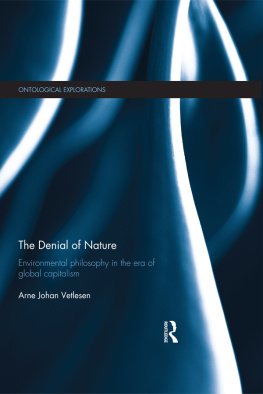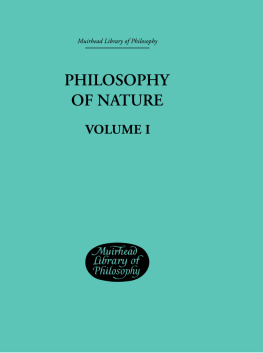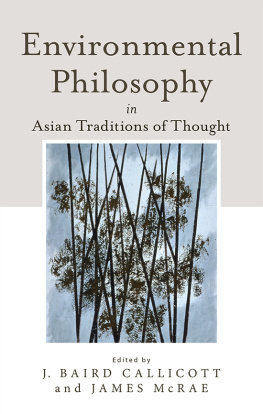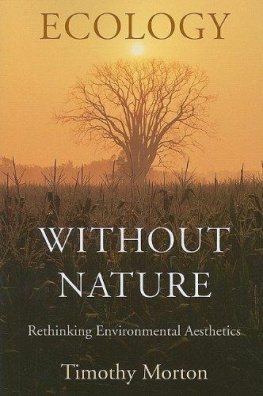1.1 Introduction: Diverse World Views of Nature
The world we know of and inhabit as living beings is our planet Earth that we sometimes call our home. The Earth with its resources such as air, water, and soil sustains us and other forms of life. Many writers have remarked that life as it occurs on this planet is a rare and wondrous thing. Sages in ancient India have even composed hymns in praise of this life force and said that it is the essence of all creation. While all of us acknowledge and recognise the uniqueness of ourselves and the cohabitants of our world, as of now, we seem to be strangely neglectful of the very resources that sustain us. The demands that we impose upon our planet are causing the depletion, pollution, and wasteful destruction of habitats, water, and air. In a short period of our human history, as a species we have transformed our habitat in many irreversible ways. When we ask the question as to what is it that sustains us and what are we are dependent on, the sages in pre-modern India would have said life. Instead, today we would easily use either of these two words that are closely relatednature and environment to talk of our dependency. Not only are we aware that we depend on nature, we are also clear that we are altering and changing it in many ways. We talk of destroying nature, polluting our environment, or causing an ecological crisis to refer to the state of crisis we, as humanity, believe ourselves to be in. Though nature and environment are used interchangeably in common parlance, specifically the term environment is associated with a somewhat functional definition. It is our surrounding that provides us conditions for growth and development and also is a source of danger and destruction. Sometimes, the environment (in ecological sciences) is described by scientists as consisting of both biotic and abiotic components of our planet.
The second term nature, however, is not that easily defined or interpreted. This term is linked to many interpretations and discoursesculturally, politically, and scientifically. The study of the concept of nature has become the foundational enquiry of a relatively new discipline of philosophy called environmental philosophy . The scope of environmental philosophy is to understand the relationship between human beings and their environment from different perspectives including the belief and knowledge that communities hold about nature, their ethical, and moral interest towards nature and the various pre-suppositions that exist in such perspectives.
The history of the idea of nature and the history of our relationship to it have been influenced by a number of sociological, historical, cultural, and political factors. There is also a growing interest in studying these contexts to understand the implication of such influences on human attitude and behaviour towards nature. Brennan and Lo () write:
A great deal of work has theorised the pathology of contemporary environmental crises suggesting that some of our underlying cultural, religious and political beliefs and attitudes are responsible for our behaving badly towards the environment. In other words, our religious worldviews, our basic political and social ideas, are not environmentally innocent (p. 7).
One could also say that these conceptualisations are not only influenced by the sociocultural contexts of various communities of people, but one can also posit that they would also vary according to the language sensibilities of these different communities. Various thinkers have attempted to trace the history of the idea of nature (Collingwood ) deal with specific perspectives, regional interpretations, and periods of history.
A brief review of literature in environmental philosophy brings to our attention the various meanings and interpretations of nature, during different periods of time even within the same culture. What this survey indicates is that the idea of nature was linked closely to what one may call a world view of these civilisations. The world views were inclusive of idea of nature in a holistic sense and these conceptualisations predate our current understanding of nature.
Brunn and Kalland () point out that concepts such as nature and others are powerful, multifaceted abstractions. Conceptualisation of nature straddles the objective world we inhabit as well as our subjective experience of it. They suggest The qualities of our environment conceived by such concepts, are products of human consciousness as much as they are universal and objective (p. 9). To unpack the nuances of the concept of nature and explore its extensions and implications is significant, particularly in non-Western traditions of thought. However, one would also have to contextualise such conceptualisations within the larger framework of existing interpretations of nature and also within the contemporary eco-ethical issues such as conservation and sustainability. We could begin this exploration by first examining some earlier understandings of nature and the environment in pre-modern traditions.
One finds that traditional philosophies of nature were concerned with the metaphysics of nature and humanity, cosmological narratives, and theories of the creation of the natural world . Besides rich descriptions of the natural world and its composition and components, many of these traditions included conceptualisations of nature that were related to particular historical, religious, and cultural contexts, within which such ideas emerged. We find that many of the later developments of conceptualisations and nature find their roots in some of these ancient pre-modern traditions .
1.2 Early Greek Views
Early Greek philosophers such as those of the Myelasian School and others subscribed to the view that matter and life are inseparable. This view is referred to as the hylozoic view. The Greeks believed that there are natural things that are self-produced, as opposed to things produced by skill, and that all of these natural things constitute a single world of nature. These things could be collectively spoken of, since they shared other qualities besides naturalness. One such important property of these natural things was that they were all made of a single substance or material.
Copleston (, p. 21) calls the philosophy of this period as instances of abstract materialism . He writes that the world, according to most of these thinkers, was made of an essential, imperishable stuff. He also suggests that these early philosophers assigned the idea of a primitive element being the stuff of the universe, though they were not materialists. This stuff was not just limited to the physical matter, but was also the stuff of thought and souls. It was substance and power, and it was also divine. It lacked any particular quality such as solidity, liquidity, or gaseousness. In this cosmos , which was made of this one-stuff, man and nature were in a continuous hierarchical order. The Pythagorean school was pantheistic in its basic outlook. Since they believed in the transmigration of souls not only across the human body but also across animals, they abstained from eating meat.







